READY TO GET STARTED?
REQUEST A FREE ESTIMATE
Fill out the form below or call (888) 466-7849 for a free, no-obligation estimate.
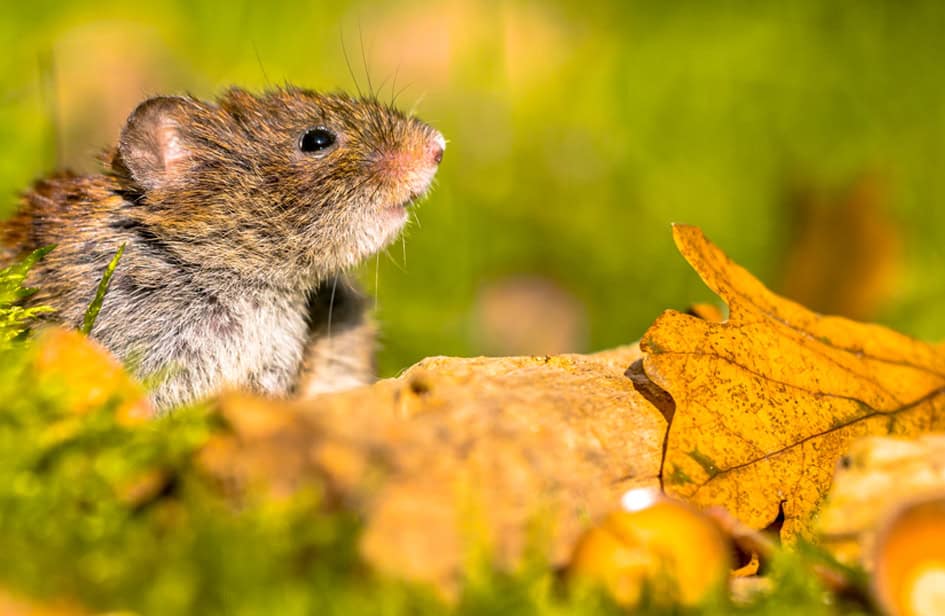
As fall settles in across Florida, homeowners are met with cooler temperatures and a notable increase in pests such as rodents, centipedes, silverfish and cockroaches seeking shelter from the changing weather. With their relentless pursuit of warmth and food, it’s crucial to implement practical strategies to keep these uninvited guests out. Discover our effective pest prevention techniques to help you prevent fall pests!
Despite the cooling temperatures, many pests remain active during fall as they search for warmth, food, and moisture. Understanding their behavior is essential for preventing their attempts to invade your home. Small cracks, crevices, and the persistent humidity can create hidden entry points, making it vital to thoroughly inspect your home for vulnerabilities. Being proactive now can save you from larger infestations later.
Seal cracks and gaps with caulking and weather stripping, particularly around doors and windows. Installing door sweeps can significantly reduce potential entry points, preventing pests from slipping through unnoticed.
Clear away debris outside and organize storage areas inside. This not only eliminates potential nesting sites for pests but also creates a more inviting atmosphere for you and your family.
Regularly vacuum and wipe down surfaces to remove food attractants that can lure pests into your home. Use sealed containers for food storage and keep trash bins emptied and covered to minimize odors that might attract critters.
Consider using essential oils like peppermint and tea tree oil, known for their pest-repelling properties. Mix a few drops of water and spray around your home’s entry points. Additionally, food-grade diatomaceous earth can effectively control crawling insects by dehydrating them; simply apply it in areas where pests are commonly spotted.
Planting marigolds, lavender, or mint around your home not only enhances your landscape but also serves as a natural deterrent to pests. These plants emit scents that repel many common insects, creating a more pest-resistant environment.
To control silverfish, maintain low humidity levels with dehumidifiers and ensure proper ventilation. Regularly declutter areas where they may hide and consider using adhesive traps to monitor and reduce their population.
To effectively manage rodents, store food in sealed containers, keep pet food stored away, and regularly clean up crumbs and spills. Additionally, sealing gaps and entry points in walls and foundations can help prevent them from entering your home. For severe infestations, consulting a pest control professional may be necessary to ensure a thorough solution.
Keep your home tidy and free of clutter, as this reduces hiding spots. Seal cracks and gaps in walls and foundations to limit their entry and consider using insecticides in severe infestations. Regularly checking for moisture issues can also help deter these pests.
To combat roaches, keep food stored in airtight containers, maintain a clean living space, and promptly address any leaks or moisture issues. Additionally, using gel baits and traps can help reduce their population. If the infestation persists, consider contacting a pest control professional for more comprehensive treatment options.
Try to reduce chemical use by adopting integrated pest management (IPM) practices, which focus on long-term prevention using various methods. Supporting local wildlife by avoiding broad pesticides and choosing targeted treatments is not only better for the environment but also helps create a healthier ecosystem.
Pest prevention is an ongoing effort, especially in Florida’s climate. By combining DIY strategies, natural deterrents, and professional help, you can ensure your home remains a pest-free sanctuary. For personalized guidance tailored to your specific situation, consider scheduling a consultation with a pest control expert. These professionals will set you up with a thorough inspection and the best treatment and prevention plan for your Florida home.
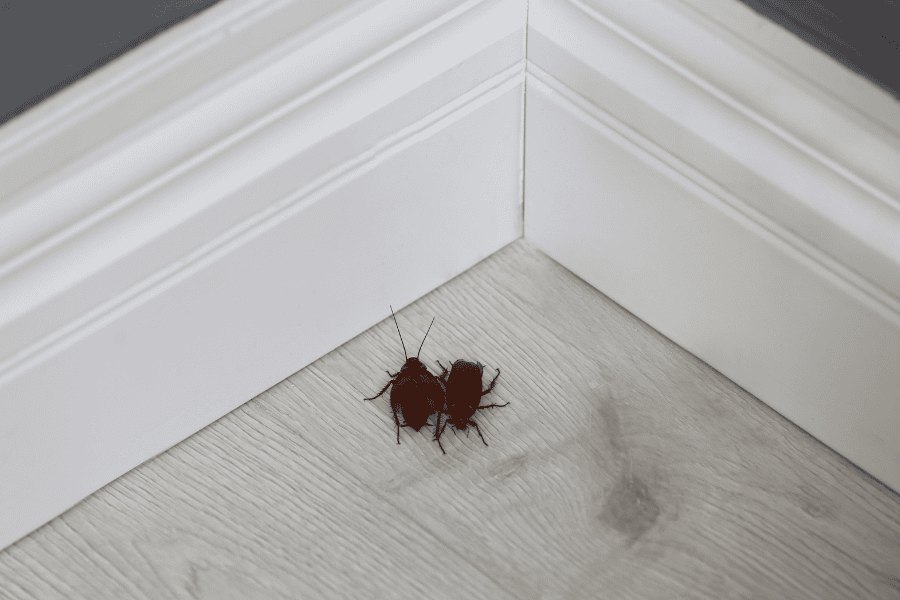
Living in Florida, we have to deal with our fair share of bugs invading our home throughout the year. Whether mosquitoes are invading your yard, ants are taking over your kitchen, or rats are raiding your trash cans, household pests can surely become a major issue. Unfortunately, humans can have a lot to do with pest infestations by our habits, often leading bugs right into our home. We break down the common reasons you could have a bug problem into your Florida home.
Our leftover trash is dinnertime for pests! Pests, such as rats and ants, are all looking for a food source for survival and will often look to our trash cans for available food, creating a huge mess in the process. It’s important to secure your outside and inside trashcan with a tightly sealed lid and ensure your trash bags are sealed without rips or tears.
Several pests prefer a damp environment and need water to survive too. Unfortunately, we also need water, and certain factors throughout our homes can provide pests with a water source, often leading to a bug problem. A leaky faucet can attract pests, like mice, who will return to areas if they have access to water or food. Make sure to check throughout your home for any leaky pipes, faucets, or AC units and repair them as soon as possible. Likewise, your basement and crawlspace can often create excess moisture that can lead to fungus, bad air quality, and pest infestations. Utilize a dehumidifier to dry any wet areas and consider crawlspace enclosure to ensure no moisture is found.
Clutter, such as old newspapers, magazines, and cardboard boxes can provide several pests with the perfect environment. Decluttering and cleaning items out to eliminate hiding places will help prevent pests overall. Consider utilizing plastic storage containers with lids to store any items and elevating them off the ground. Additionally, avoid having clothes piled on the floor, as bugs like spiders are known to hide out in them.
Dirty dishes, food crumbs, and drink spills can attract pests like flies, ants, roaches, and more right into your home! After each meal, wash and put away your dishes to avoid these pests. Likewise, clean up any leftover spills and food crumbs off your floors, dining room table, and counter tops. Don’t forget to clean behind and under your kitchen appliances too as pests like to hide behind stoves and refrigerators to find a food source.
If you’ve noticed an increase of bugs throughout your Florida home, it’s best to call a pest control company near you. These professionals will provide you with a comprehensive pest control and prevention plan.
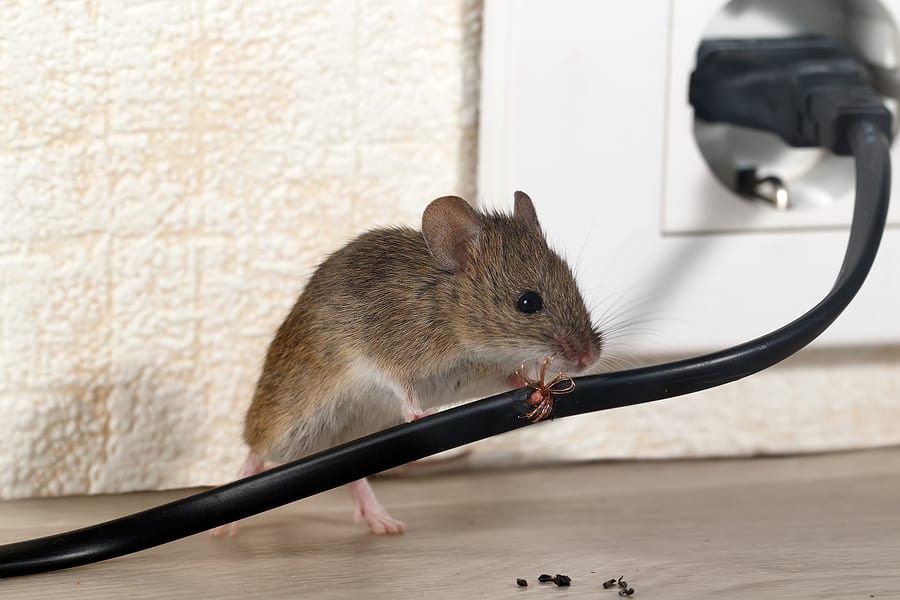
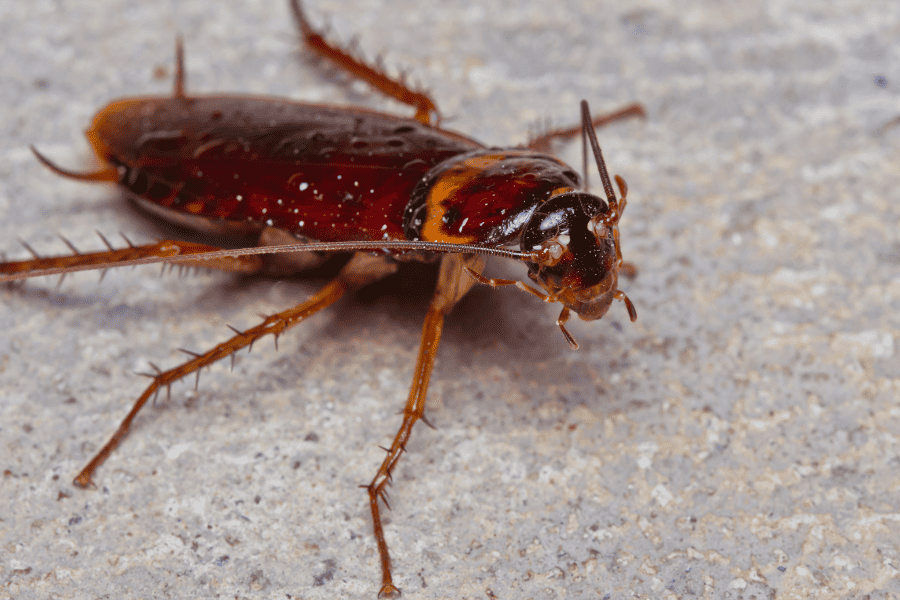
Cockroaches are common household pests seeking a warm environment to provide them with food and water. These pests can pose a serious health risk to humans as they transmit diseases and trigger allergies and asthma. Roaches will utilize any small hole, gap, or cervices to enter your home. They are also known to hitch a ride inside grocery bags, boxes, and used appliances.
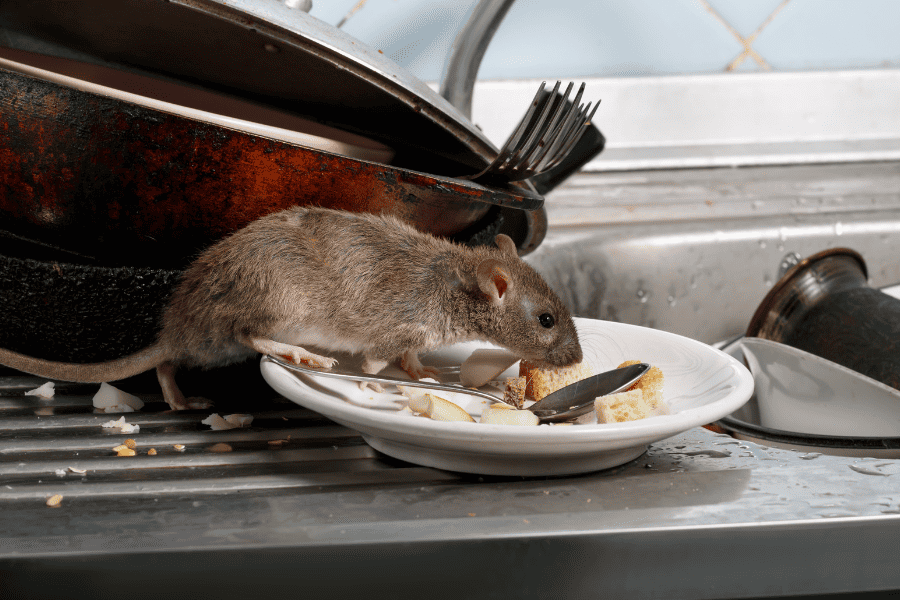
Rodents, including rats and mice, are year-round pests but they can become a major problem as the winter season approaches. Rodents will seek out warmth, food, shelter, and water inside our homes, squeezing through small holes and gaps to get inside. Mice and rats can cause damage to our homes and be a health risk to humans as they are known to chew through insulation, wiring, wood, and contaminate surfaces through their droppings.
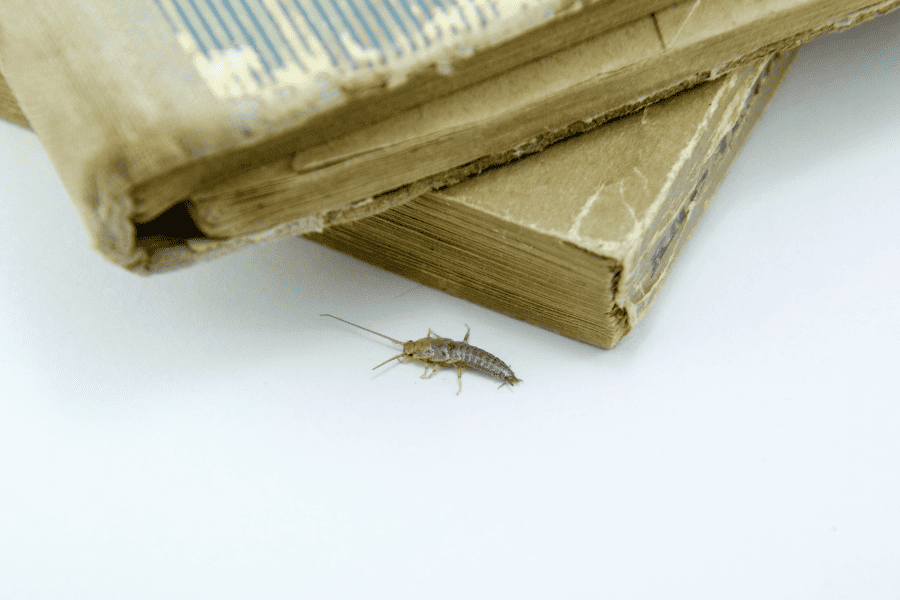
These pests will look to your basements and bathrooms to seek a damp, cold place to live in. While silverfish are harmless to humans, they can invade in numbers, and cause them to be a major nuisance to remove them. These pests will often gain access to your home by hitching a ride through the items you’ve taken out of storage in your garage or attic. Silverfish will also feed on your books, glue, wallpaper, and boxes.
It might seem impossible to deter wildlife creatures from your home during the winter but by placing certain preventative measures throughout your property, you can avoid their infestation! Check out these winter pest control tips when you want to keep these pests away:
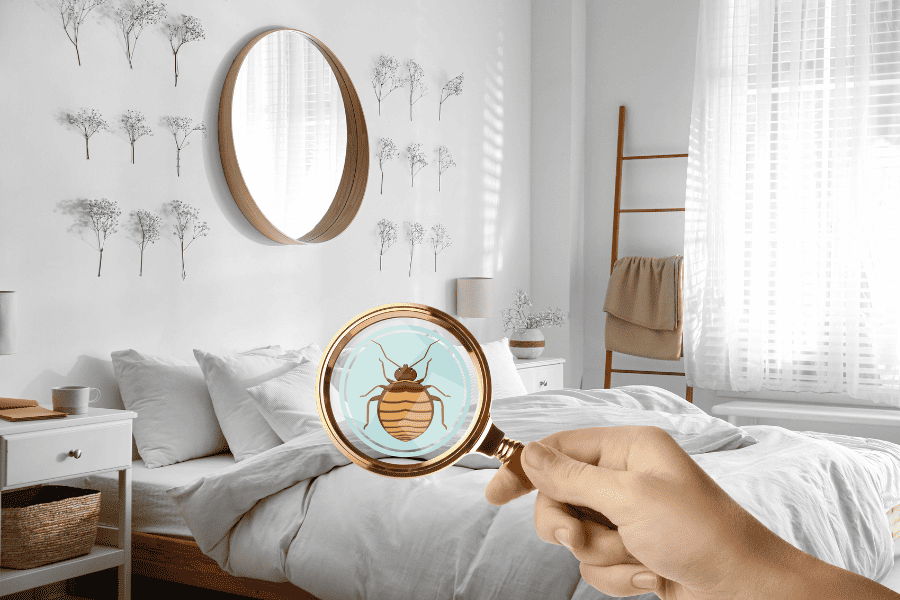
Traveling for the holidays, staying at hotels, and visiting family are all opportunities for bed bugs to hitchhike through your luggage and make their way into your home! These invasive pests will go undetected for long periods, reproducing quickly, and causing a full-blown infestation. One of the best ways to avoid bed bugs inside your home is to prevent them in the first place.
While packing for your trip, consider utilizing plastic bags to pack your clothes, shoes, and other personal items to help prevent bed bugs that climb into your suitcase. Before booking your hotel room, look up the bed bug registry. Once you get to your hotel room or Airbnb, inspect the room for signs of bed bugs, including small, dark spots, bloodstains, or bed bug skins. Try to avoid placing your luggage on the bed or floor, instead, place it on tile floors, in a closet, even in showers or tubs, and keep it away from the walls and any wooden furniture.
Once you return home from a trip, unpack your items outside instead of inside your home. Look to unpack your clothes and personal items outside, and wash them immediately through a high-heat dryer cycle as bed bugs cannot withstand high temperatures. If you’ve recently purchased secondhand furniture, groceries, or have a delivery, make sure to always inspect them before bringing them inside.
If you’ve seen bed bug signs or a live bed bug, it’s important to act fast to eliminate them from your home. There are several do-it-yourself bed bug methods that you can utilize but having a professional provide you with an inspection and a bed bug treatment plan is usually best. These licensed professionals will give your home in in-depth inspection and a customized bed bug control plan, either a chemical or heat treatment, based on your pest situation. If you suspect a bed bug infestation, contact your Florida pest control company for more information.
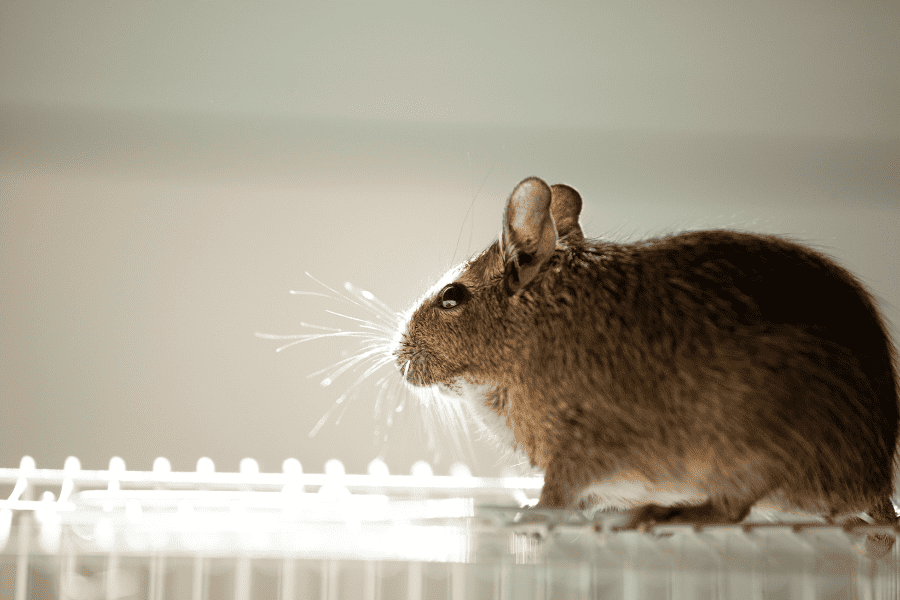
Rodents are a common pest Floridians will deal with. Rodents, like rats and mice, invade homes in search of water, shelter, and food to survive. Once rodents have infested your Punta Gorda home, it can be difficult to remove them as they will often reproduce quickly! It’s important for Punta Gorda homeowners to understand what attracts rodents to their homes and how to prevent them from infesting.
Dealing with rodents in your home is less than ideal. Luckily, there are do-it-yourself preventative measures you can place throughout your home to keep these pests from invading. Consider the following rodent control tips:
In summary, what attracts rodents to your Punta Gorda home is food, water, and shelter. If you suspect a rodent infestation, contact your local pest control company for help. These professionals will thoroughly inspect your home and safely remove any rodents that are found on your property.